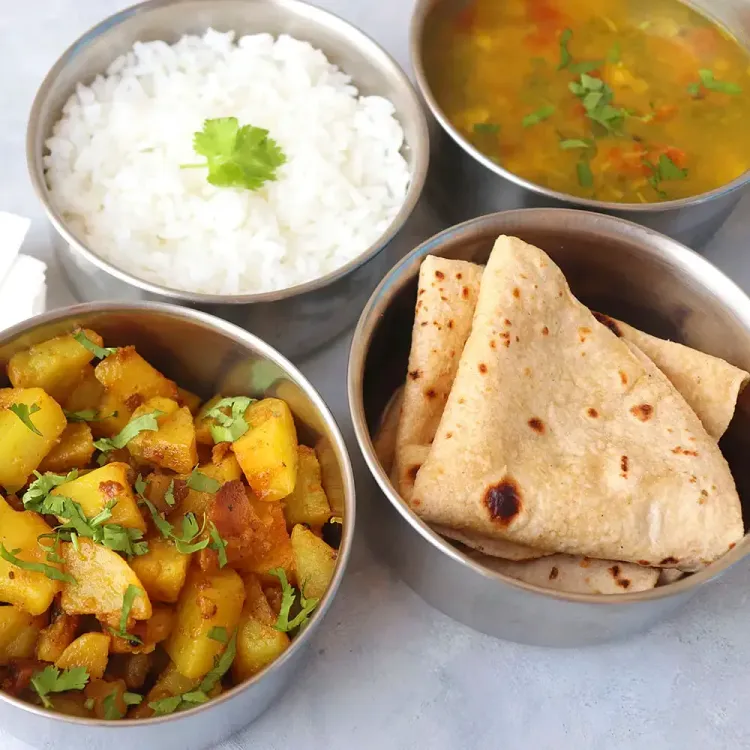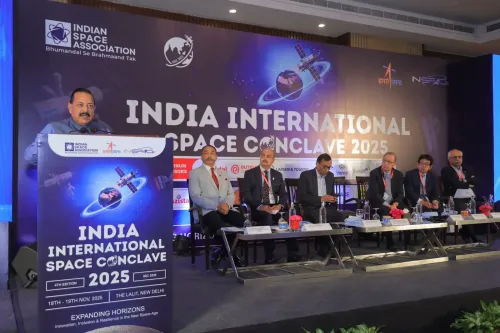Reducing Oil Intake and Increasing Activity Essential to Combat Obesity

Synopsis
Key Takeaways
- Limit oil consumption to manage weight.
- Increase daily physical activity.
- Eat home-cooked meals.
- Avoid processed foods high in sugar and fat.
- Practice mindful eating and reduce portion sizes.
New Delhi, Feb 25 (NationPress) Minimizing oil consumption, alongside enhancing physical activity and maintaining a nutritionally balanced diet, is essential in combating the growing issue of obesity in our nation, experts emphasized on Tuesday.
This announcement follows Prime Minister Narendra Modi's initiative on Sunday during his "Mann ki Baat" program, where he appointed 10 notable individuals to advocate for the anti-obesity campaign as part of the 'Fit India' movement.
Dr. Naval Vikram, a Professor of Medicine at AIIMS, New Delhi, conveyed to IANS that it is crucial to address obesity with utmost seriousness, as it is rapidly becoming prevalent across different age groups and socio-economic strata.
"Obesity has transitioned from being a mere cosmetic concern to a chronic disease that can lead to numerous other serious health conditions, including diabetes, hypertension, heart disease, and various cancers. This is a lifestyle-related disease that is completely preventable," he asserted.
He commended PM Modi for bringing attention to the obesity crisis and the vital need for its prevention.
While lifestyle changes are paramount in preventing and managing obesity, dietary choices also play a critical role. Individuals should strive to avoid foods laden with high fat, sugar, and salt—common in many processed foods, according to Vikram.
"Prioritize a well-balanced diet and, when possible, consume home-cooked meals," the expert recommended.
Moreover, the Prime Minister has urged the public to reduce their oil intake by 10 percent.
"This is a significant step toward both preventing and managing obesity," Vikram noted.
Dr. Anoop Misra, Chairman and Director of Diabetes and Endocrinology at Fortis C-DOC Hospital, New Delhi, informed IANS that "oils contain twice the calories of carbohydrates and proteins."
"Given the rising rates of obesity, it is advisable to limit oil consumption to 15-20 ml daily," he added.
"Oils that are rich in monounsaturated fatty acids (MUFA) and polyunsaturated fatty acids (PUFA) can help lower bad cholesterol and support heart health. Mustard oil is the optimal choice due to its cost-effectiveness and health benefits," he advised while discouraging the intake of saturated fats to mitigate the risk of liver disease, heart attacks, and strokes.
The experts emphasized that reducing oil consumption would contribute to a calorie deficit, which is essential for weight loss or maintenance.
Additional strategies to combat obesity include favoring home-cooked meals using locally and seasonally sourced ingredients.
Avoidance of junk food, ultra-processed items, sugary drinks, and high-fat fried foods is also recommended.
Other suggestions involve reducing portion sizes, practicing mindful eating, decreasing screen time, and increasing physical activity, according to the experts.
"A diverse and balanced diet along with at least 30 minutes of regular physical activity should be adopted by everyone to combat obesity," stated Dr. Parmeet Kaur, Chief Dietician at AIIMS, New Delhi.
"Stay active in your daily routines. Aim to incorporate movement into your activities, even in sedentary jobs. Take short breaks to walk around for 10 to 15 minutes every hour or so. Dedicate about half an hour to an hour to exercise daily," Vikram advised to IANS.









